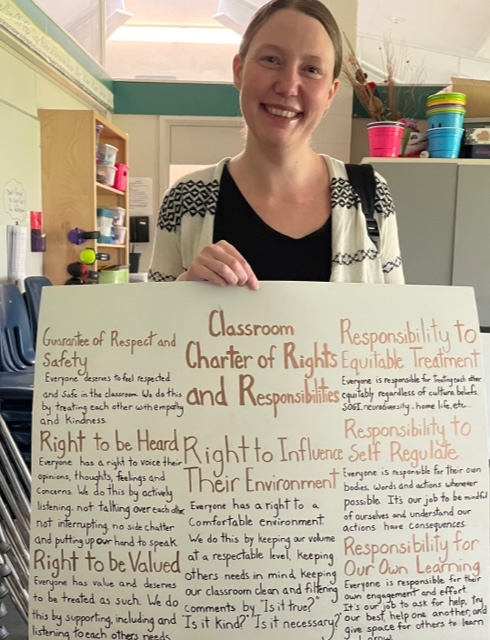
My educational philosophy is centered on Arts integration, Social/Emotional Learning (SEL), Indigenous content, Standard 9 of the BC Teaching Standards, and Truth and Reconciliation with Indigenous peoples.
Arts integration has been the driving force behind my approach to lesson development. As a visual/performance artist myself, I understand the value of the arts for promoting creativity, critical thinking, and engagement. By combining artistic concepts with core academic subjects such as math, science, and social studies, students connect with difficult concepts in unique and authentic ways, while developing self-regulation skills, fostering positive relationships, and expressing themselves creatively. Additionally, integrating Arts into SEL supports students’ personal growth and academic success.
SEL is crucial, particularly in the aftermath of the pandemic. Teachers can create a safe, supportive, and inclusive learning environment that fosters positive relationships and social connections. There has been a significant increase in student anxiety and social issues post-pandemic, and it is more important than ever for educators to provide environments that build on safety, compassion, and community. Incorporation of the First Peoples Principals of Learning, and the Seven Grandfather teachings is one of the many ways educators can support students’ mental health and well-being and promote their academic and personal success.
Indigenous content is essential for promoting cross-cultural understanding, and respect, and can contribute to the process of reconciliation. Standard 9 of the BC Teaching Standards focuses on the historical and contemporary experiences of Indigenous peoples in Canada, which can help to promote cross-cultural understanding. Engaging in Truth and Reconciliation efforts with local Indigenous communities, such as the Secwepemc people in SD73, can nurture cross-cultural understanding, and respect.
By prioritizing Arts integration, SEL, Indigenous content, Standard 9 of the BC Standards, and Truth and Reconciliation with Indigenous peoples, educators can create an inclusive and equitable education system that values and respects the diverse perspectives and experiences of all students. This can lead to a more engaged, empathetic, and compassionate society that is better equipped to face the challenges of the future.